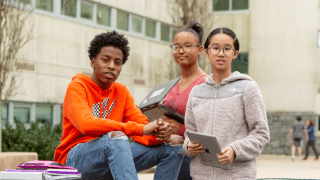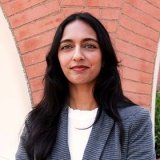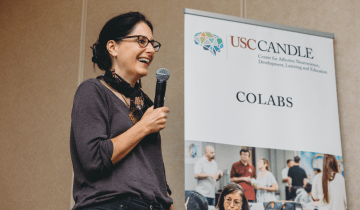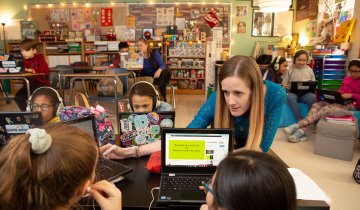Today, the Urban Institute announced that it has selected a proposal from USC Rossier Associate Professor Huriya Jabbar and Wayne State University Associate Professor Sarah Winchell Lenhoff as one of its first 16 grants funded through the Student Upward Mobility Initiative.
Jabbar and Lenhoff’s research will develop and test a strategy to create a scalable measure of youth social capital. Previous research suggests that social connections and racially and socioeconomically diverse peer networks drive youth educational outcomes and economic mobility. However, historically, the data in social network research have been notoriously difficult and expensive to acquire, often requiring the complicated “gold-standard” approach, which consists of lengthy surveys that ask participants to self-report their ties from a roster of all potential connections.
In this study, the researchers will field student-level surveys focusing on cross-class and cross-race ties in four diverse high schools in metropolitan Detroit. They will then compare these results with similar data acquired through existing administrative data accessible through school districts and state agencies. The primary goal of this research is to determine how accurate the administrative data are compared to the surveys, to potentially develop a more convenient and scalable measure of students’ social capital, which can be used by other researchers to explore the causes and consequences of various forms of social capital.
“We are grateful to the Urban Institute and the Student Upward Mobility Initiative for selecting our proposal,” said Jabbar. “We know how crucial peer networks are to a student’s well-being and access to critical information, throughout their experience at school and in the workforce. Our hope is that this research will produce valuable insights into the study of social capital and provide more convenient and replicable methods for examining this subject in future research.”
“We’re excited to be partnering with school districts across Metro Detroit, where school segregation often prevents students from developing diverse social networks,” said Lenhoff. “Our partner high schools enroll diverse student bodies and are eager to learn about how their students develop friendships that might lead to better educational opportunities.”
This work is made possible through the support of the Student Upward Mobility Initiative, a sponsored project of Rockefeller Philanthropy Advisors in partnership with the Urban Institute. Initiative funders include the Walton Family Foundation, Bill & Melinda Gates Foundation, and Joyce Foundation. To learn more about the initiative, visit studentupwardmobility.urban.org.





